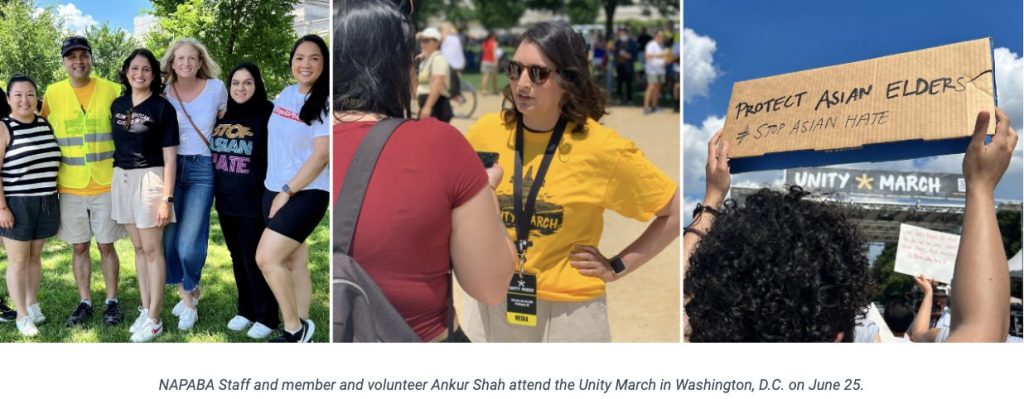For Immediate Release:
Date: July 29, 2022
Contact: Priya Purandare, Executive Director
WASHINGTON—Today, President Joe Biden nominated Justice Myong J. Joun to serve on the U.S. District Court for the District of Massachusetts and Judge Rita F. Lin to serve on the U.S. District Court for the Northern District of California. If confirmed, Justice Joun would be the first Asian American male to serve on the federal bench in Massachusetts and Judge Lin would be the first Chinese American female to serve on a district that includes San Francisco and San Jose.
“NAPABA congratulates its members, Justice Myong Joun and Judge Rita Lin,” said A.B. Cruz III, acting president of NAPABA. “Justice Joun is the second former Asian American Lawyers Association of Massachusetts president to be nominated to an Article III judgeship and Judge Lin is a past NAPABA Best Under 40 awardee. Both are exceptionally well qualified. We applaud President Biden for nominating them and we urge the Senate to swiftly confirm them.”
Justice Myong J. Joun
In 2014, Justice Joun was appointed by Governor Deval Patrick to the Boston Municipal Court. Previously, he was in private practice where he specialized in criminal defense and plaintiff’s civil rights litigation in state and federal courts. A former president of NAPABA’s affiliate, the Asian American Lawyers Association of Massachusetts, Justice Joun is active in the greater legal community. He currently serves as treasurer of the Harry J. Elam Judicial Conference and has served on the Executive Management Board of the Massachusetts Bar, the board of directors for the National Lawyers Guild and Lawyers’ Committee for Civil Rights Under Law of the Boston Bar Association. Justice Joun is a veteran of the United States Army and the Massachusetts National Guard. He received his J.D. from Suffolk Law School and his B.A. from the University of Massachusetts.
Judge Rita F. Lin
In 2018, Judge Rita Lin was appointed by Governor Edmund Brown, Jr. to the Superior Court of San Francisco. Previously, she was an assistant U.S. attorney of the Northern District of California and a partner at Morrison and Foerster, where she focused on complex civil cases and financial services. At the firm, she had an active pro bono practice, including successfully challenging the federal Defense of Marriage Act. Judge Lin clerked for the Honorable Sandra Lynch of the U.S. Court of Appeals for the First Circuit. In 2017, NAPABA honored her with its Best Under 40 award. She received her J.D. from Harvard Law School and her B.A. from Harvard College.
###
The National Asian Pacific American Bar Association (NAPABA), represents the interests of over 60,000 Asian Pacific American (APA) legal professionals and nearly 90 national, state, and local APA bar associations. NAPABA is a leader in addressing civil rights issues confronting APA communities. Through its national network, NAPABA provides a strong voice for increased diversity of the federal and state judiciaries, advocates for equal opportunity in the workplace, works to eliminate hate crimes and anti-immigrant sentiment, and promotes the professional development of people of all backgrounds in the legal profession.







